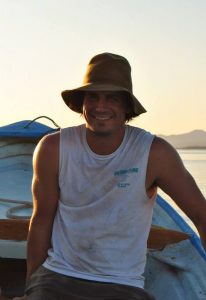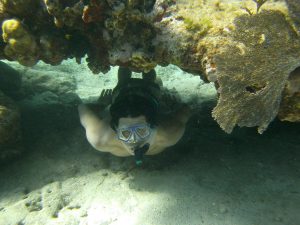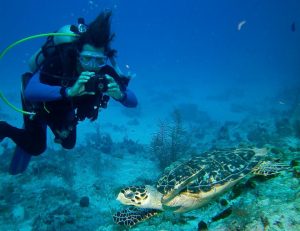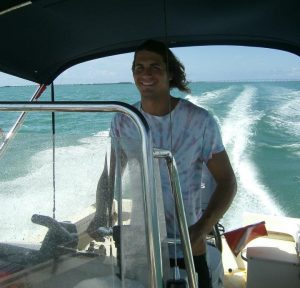
Scott graduated from Clemson University in 2013 with a B.S. in Biological Sciences and a minor in Environmental Science and Policy. As an undergraduate, he studied abroad with the School for Field Studies in the Turks and Caicos  Islands, where he monitored coral health around the island of South Caicos and was involved in a sea turtle tagging project. Upon returning from the islands, he spent a summer as an NSF REU intern at the University of Delaware under Dr. Charles Epifanio,
Islands, where he monitored coral health around the island of South Caicos and was involved in a sea turtle tagging project. Upon returning from the islands, he spent a summer as an NSF REU intern at the University of Delaware under Dr. Charles Epifanio,  during which he studied intertidal crab populations with an emphasis on the invasive Asian shore crab. For his undergraduate honors thesis he studied the effects of ocean acidification and disease on the den sharing behavior of juvenile Caribbean spiny lobsters in Dr. Michael Childress’ lab.
during which he studied intertidal crab populations with an emphasis on the invasive Asian shore crab. For his undergraduate honors thesis he studied the effects of ocean acidification and disease on the den sharing behavior of juvenile Caribbean spiny lobsters in Dr. Michael Childress’ lab.
Scott entered the Ichthyology lab at MLML in the fall of 2013. He is interested in within-species variation of important life history traits, such as diet, and how these change based on location. In addition, he is interested in determining what physical and biological factors drive these variations. For his M.S. thesis he is studying the diet of coral reef fishes from the Southern Line Islands, a chain of five remote islands in the central Pacific. He is examining eight species from multiple trophic guilds to determine how trophic relationships vary across gradients of environmental variation.
In addition to his thesis, Scott has been busy gaining field experience locally and around the world. He has volunteered as a scientific diver for PISCO‘s long-term kelp forest monitoring program. Last summer, he was selected to attend a three-week Red Sea Research Center workshop at the King Abdullah University of Science and Technology (KAUST) in Saudi Arabia. In the fall of 2015, he assisted the Waitt Institute’s Blue Halo Initiative by participating in two-week cruises to the Caribbean islands of Montserrat and Curacao. He acted as one of the visiting scientists who worked in a group to conduct the ecological assessment of these islands to determine baseline information on the state of the marine resources of these islands. The goal is that these data will be used to enhance resource management and conservation efforts at the islands.
If you want to learn more about him and his research interests, feel free to check out his page on the student-run MLML blog!



